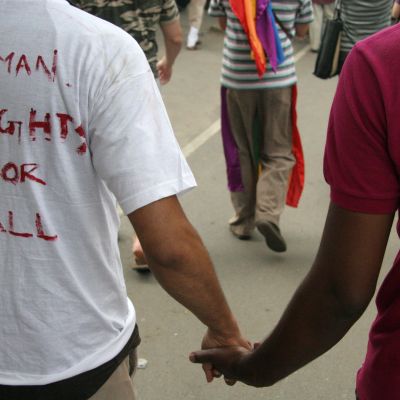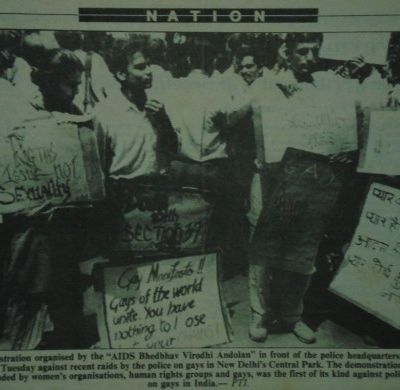Siddharth Narrain
Looking back at this piece, written seven years ago, the core issues that I identified then remain significant and relevant….
ऑनलाइन डेटिंग पहली मुलाक़ात में किसी को अपने घर बुला लेने जैसा लग सकता है, लेकिन फ़र्क़ ये है कि हम फ़ैसला कर सकते हैं कि हम उन्हें अपने घर और अपनी निजी ज़िंदगी के कौन-से हिस्सों में जगह देने के लिए तैयार हैं।
Even with all the risks that AI poses, it seems a safer bet than humans trying to exploit dating apps to make quick money.
At first glance, dating and social distancing appear to be oxymorons. But, as the last few weeks have shown us,…
Consent, however, is not so straightforward in the digital world. With instances where data can be hacked into, and with deep fake technologies making it more difficult to distinguish between what is real and what is fake, we have a situation where it is difficult to completely anticipate the kinds of risks involved, and the ways in which sexually explicit material is used.
As Sontag points out, camp is a mode of enjoyment, not judgment. It is intrinsically generous, and is a form of love for human nature, it relishes the awkward intensities of character. Central to camp is a tenderness of feeling and love that has gone into certain objects and personal styles.
In 2008, there were two important sets of events that happened: six weeks of intense hearings at the final arguments stage in the Naz Foundation case at the Delhi High Court, where section 377 of the Indian Penal Code was being challenged, and a bunch of folks in Delhi deciding that they were going to organize a Pride March. While these don’t seem obviously connected, they were both expressions of freedom, one in constitutional terms within the courtroom, and the other, a very public expression of freedom, taking to the streets.
The promises of the Internet are, of course, highly contextual. The Internet will mean very different things to a person who has access to their own mobile phone in a city with a reliable and affordable broadband or WiFi connection, as compared to someone who does not have access to a reliable Internet connection or who is unable to go to a shop to exchange downloaded songs and clips through an SD card.
‘Sexuality’ and ‘marriage’ are terms that we don’t instinctively think of in the same breath.
In the debates around the need to expand the rights that accrue through marriage to same-sex couples, what is often lost are the forms of legal recognition of relationships not in the nature of marriage or blood. As the nature of traditional relationships changes across India, with more people opting to live singly or with friends, we really need to begin thinking seriously about new forms of legal recognition.
As someone who has worked on sexuality and gender related issues, HIV and AIDS has been part of the larger…










